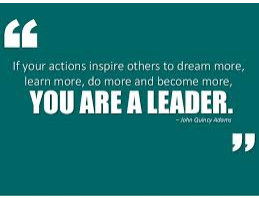Your values form the foundation of your life. They dictate the choices you make and determine the direction your life takes. They influence your decisions related to your relationships, career, and social activities.
What were the values you were raised with? What values are you presently living in accordance with? Are they the same or different? Do they bring you happiness? These are essential questions that you must ask if you are to find meaning, happiness, success, and connection in your life. Yet, finding the answers to these questions is a challenge and then changing your values in a way that will lead to fulfillment is an even greater challenge.
Understanding Your Values
Looking openly and honestly at the way you were raised is a step in identifying the values instilled in you growing up. What did your parents value and what did they impress upon you—achievement, wealth, education, religion, status, independence, appearance? Think back to your childhood and ask yourself several questions. What values were emphasized in the way your parents lived their lives? What values were stressed in your family? What values were reflected in the way you were rewarded or punished? For example, were you rewarded for being highly ranked in your high school class and for winning in sports, or were you rewarded for giving your best effort and for helping others?
Your next step in understanding involves looking at your present life and the values your life reflects. What do you do for a living? Are you a corporate employee? Business owner? Teacher? Salesperson? Caterer? Social worker? A common question people ask others is: What do you do for a living? I have seen people get defensive in response to this question. They say, “Who cares what I do? What I do is not who I am.” I would suggest otherwise, at least to some degree. Assuming people have choices in the career paths they take, what they choose reflects who they are and what they value. For example, though a bit of a generalization, it is probably safe to say that someone who becomes an investment banker has different core values than someone who becomes an elementary school teacher. Someone who becomes a construction worker values different things than a nurse. Underlying values vary and create common interests, lively dinner conversation and in the end, tension in relationships – at home, at work and in friendships.
- Where do you live? Apartment? In the suburbs? In the country? What led you there?
- What activities do you engage in most? Cultural, physical, religious, political, social? What values are reflected in those activities?
- What do you talk about mostly? politics, religion, the economy, other people—and what does that tell you about your values?
- What do you spend your money on? a home, cars, travel, clothing, education, art, charity? Because money is a limited resource for most people, they will use their money in ways that they value most. Over and above what people say and other indicators in their life, where they spend their money says the most about what and whom they value.
How did you learn to define success? Some families define success as winning, wealth, job status, physical appearance, or popularity—the more money and power you have and the more attractive and popular you are, the more successful you would be. Growing up with these definitions, success was largely unattainable for most people. As an adult it is imperative to review your core values.
Look at the chart below. Fill it out for yourself, your parents, your employer and others. You will see where areas of relational conflict are, and where there are differences in what you and others value.
In the process of discovery and understanding, please remember that personal coaching and counseling is often helpful. Call, text or email me to set up an appointment. I am also available for online appointments at your convenience.
Cheryl@heldtogether.net
www.heldtogether.net
‘Like me’ on Facebook!
![]()
When we feel most alive and authentic, it is because we are living in alignment with our values.
- Love (compassion, unity, helping others)
- Success (achievement, accomplishment, power)
- Independence (freedom, autonomy, working alone)
- Security (safety, loyalty, order, consistency)
- Flexibility (change, adaptability, optimism)
- Power (confidence, wealth, reputation)
- Faith (trust, spirituality, conviction)
- Compassion (kindness, empathy, generosity)
- Well-Being (health, energy, joy)
- Peace (presence, contentment, calm)
- Significance (contribution, influence, recognition, power)
- Balance (flexibility, harmony, resilience)
- Growth (wisdom, progress, learning, action)
- Creativity (inspiration, imagination, originality)
- Resilience (perseverance, hope, strength)
- Responsibility (choice, consistency, justice)
- Integrity (authenticity, truth, fairness)
- Simplicity (calm, silence, peace, free time)
- Adventure (bravery, courage, action)
- Family (tradition, connection, relationships)
- Helping Society
- Team Work
- Other
Exploring Values
Your values are the beliefs that define what is most important to you. They act as a guide for your decisions. Oftentimes, they are greatly influenced by important people in our life, and our society.
Fill in the blanks for each topic below:
My mother’s values: My father’s values:
1. 1.
2. 2.
3. 3.
4. 4.
An Important person to my values: Society’s values:
1. 1.
2. 2.
3. 3.
4. 4.
The values I would like to live by: The values I actually live by:
1. 1.
2. 2.
3. 3.
4. 4.





